Shazia Omar and Raisa Chowdhury
CHILDREN are legally entitled to work in Bangladesh starting at age 14 but without a formalised savings mechanism, they are not able to accumulate income and put away savings to help them deal with shocks in the future. Access to financial and social assets can enable youths to make their own economic decisions and escape poverty. Providing young people with financial services - whether a safe place to save or an appropriately structured loan for investment in an enterprise or education - can promote entrepreneurship and asset building, and emphasise sustainable livelihoods.
Despite these benefits, a few financial service providers (FSPs) such as banks, credit unions or microfinance institutions, understand and adequately serve the youth market, and regulatory frameworks are not designed to be youth inclusive or protective of youth rights. NGOs in past that have experimented with savings programmes for street children have failed: in some cases, children have had difficulty accessing their money, in other cases, NGOs themselves have exploited the children and taken their money as part of their 'fundraising'. None of these solutions have been sustainable or scalable.
In 2014, Bangladesh Bank, under the wise guidance of Governor Atiur Rahman, instituted a new policy that allowed street children to open bank accounts without a guardian as long as an NGO signs on their behalf. NGOs can serve this role but many of the organisations engaged in this work do not have specific individuals dedicated to assisting children with financial services and neither do commercial banks. Both NGOs and banks also require child-sensitisation training to make this process more sustainable. While this policy has made space for the dialogue to begin, more is needed. For example, robust legal and regulatory scaffolding must be developed to ensure that the wellbeing of the children is prioritised over profit.
"Despite the policy, there are many systemic issues that pose barriers to children looking to save their money," explains Md. Mamunur Rashid, Manager of Civil Society and Child Rights Governance at Save the Children Bangladesh. "Commercial banks are for-profit businesses while street children typically store only small amounts of money. As a result, these accounts are often treated with lower priority and the processing is delayed. The children do not find the atmosphere within banks congenial. As a result, they are deterred from returning by the negative reception that they receive from banking institutions as well as their employees."
More comprehensive support must be provided in order for children to fully recognise the benefits that a savings account can provide. Financial capability is defined as 'the combination of knowledge, skills, attitudes, and especially behaviours that people need to make sound personal finance decisions, suited to their social and financial circumstances.' To address the challenge of low financial capabilities of youth and to equip youth with the confidence to make sound financial decisions, effectively manage financial services, and develop and work toward a tangible savings goal, policymakers should develop national financial-literacy strategies for youth, as well as entrepreneurship programmes that increase the financial capabilities of youth. Governments and donors should support the development and implementation of such strategies, be they school based, community based, technology based or otherwise. This multi-stakeholder approach to overcoming these three barriers can bring increased attention to the opportunities of youth financial inclusion and capability, attract the resources to invest in those opportunities and share learning to increase the impact of these investments.
While saving mechanisms are thus slowly being developed, credit still remains out of reach until a child is 18. Even once they reach legal adulthood, former street children have a hard time obtaining loans and microloans because they have no collateral. NGOs like Save the Children are working on providing skill development workshops that will help working youth present themselves as reliable earners. Culturally, there is also a notion that lending and credit is risky and should be avoided so some children are disinclined from pursuing such services and supporting workshops even when they are made available.
Bangladesh Bank has a large corporate social responsibility fund that could perhaps be used to develop innovative technology tools that help monitor and evaluate the impact and utilisation of bank accounts by children. More research is necessary and evidence-based best practices need to be developed to address the institutional and cultural factors that keep financial ecosystems hostile for street children.
..........................................................
The writers are Head of Progress Tracker, and Program Design and Research Fellow, respectively, at mPower Social Enterprises Ltd. They may be reached at shaziaomar@gmail.com and raisa@mpower-social.com.





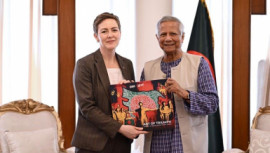

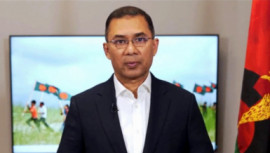







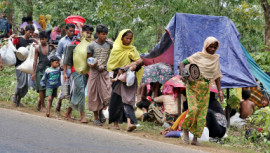
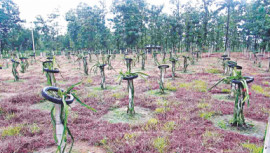
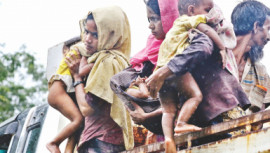


Comments